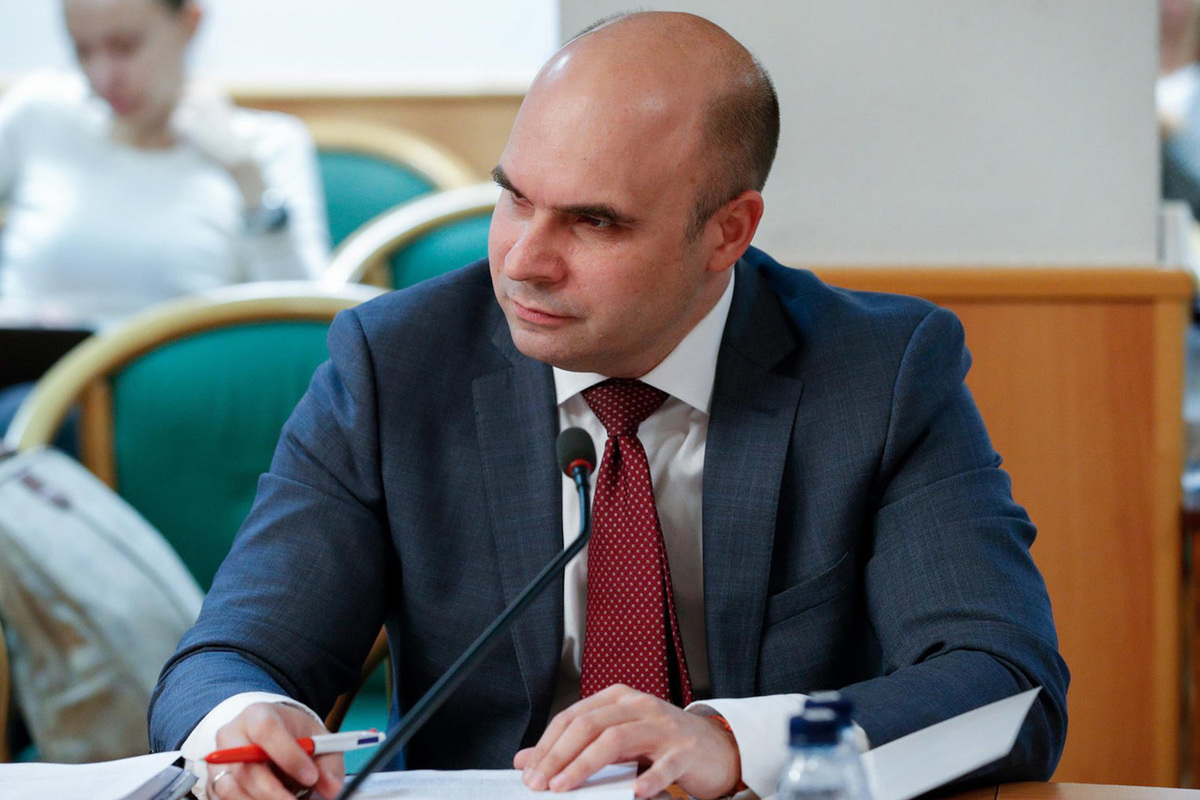Deputy Chairman of the Central Bank Zabotkin named the reasons for rising prices
[ad_1]

Inflation is held hostage by new economic shocks
Annual inflation may reach its peak in the spring-summer of 2024. This was stated by Deputy Chairman of the Central Bank of the Russian Federation Alexey Zabotkin during a meeting of the State Duma Committee on the Financial Market. At the beginning of October, inflation was 5.9%, and in order for it to return to the Bank of Russia’s target of 4% next year, the regulator will have to tighten monetary policy, that is, raise the key rate.
This year’s inflation forecast is being revised by all economic departments – naturally, upward. This is also done by the Bank of Russia, whose calculations are considered the most accurate, because the regulator takes an independent position and does not need to satisfy the requirements of other ministries. If in mid-August the Central Bank stated that in 2024 it would be possible to achieve inflation of 4%, now we are talking about the fact that, on the contrary, a peak in price growth is expected in the first and second quarters. “In terms of annual inflation, the maximum point will probably be passed somewhere in the spring and summer,” Zabotkin said. As of October 2, it was 5.9%, and to return to 4%, the regulator plans to tighten monetary policy in 2024. In other words, there is no reason to expect a reduction in the key rate by the Bank of Russia, which is a very effective means of influencing price growth, but at the same time “freezes” economic activity.
As Maxim Osadchiy, head of the analytical department at BKF Bank, noted, the inflation target of 4% is becoming more and more distant and less achievable, as if shooting at a moving target. Meanwhile, the threat of galloping inflation is increasing, as in Turkey, where its annual rate in September exceeded 60%. “The task of curbing inflation is complicated by the fact that various departments behave like a swan, a crayfish and a pike, and the old instruments and methods of financial policy, such as the fiscal rule and inflation targeting, coupled with the free float of the ruble, have turned out to be unsuitable for withstanding new shocks,” the expert explained. — For example, in August, according to the budget rule, the Ministry of Finance was supposed to buy foreign currency, but due to the collapse of the ruble it sold it. The Central Bank is tightening monetary policy by raising the key rate, tightening macroprudential requirements, and cooling the credit market, while the government, on the contrary, stimulates the credit market through subsidies.” The increase in the Central Bank’s inflation forecast should not come as a surprise. In September, the Ministry of Economic Development also changed its forecast for the current year from 5.3% to 7.5%. New shocks are arriving, such as the collapse of the ruble in August, and accordingly, it is necessary to change forecasts taking into account the changed conditions, the analyst notes.
The sphere of transport and delivery of goods has a great influence on prices. The authorities have not yet been able to curb the increase in the cost of gasoline, but measures are being taken, and since the government is paying great attention to this topic, perhaps the effect will manifest itself over time. “You shouldn’t expect an inflation rate of 4% in the next few years,” warns Associate Professor of the Russian Economic University. Plekhanova Yulia Kovalenko. “This is also due to logistics, which is becoming more and more expensive every day, as well as political aggravations in different regions of the world.”
Next year, two more events will affect the price situation – political and economic. The first of these is the elections in March 2024. The second event is the indexation of housing and communal services tariffs from July 1, 2024 by a total of 9.8%. Perhaps the underestimation of these factors was the reason for such optimistic inflation forecasts for next year, which were previously issued by economic departments. “I assume that the previous forecasts of the Bank of Russia did not take into account the indexation of housing and communal services tariffs,” explains Igor Nikolaev, chief researcher at the Institute of Economics of the Russian Academy of Sciences. — This year there was no such indexation, but inflation still accelerated. But the Bank of Russia paid attention to this factor, although I think that it also underestimates it, therefore, in my opinion, inflation is unlikely to decrease in the second half of 2024.” Another factor that departments must take into account is the ruble exchange rate. According to the expert, before the elections they will try to maintain the stability of the national currency, that is, the impact of the weak ruble until the end of the first quarter will be small. And from the second quarter of 2024, it may again noticeably give way to the dollar. As for the key rate, over the next nine months it may be between 15% and 20%, Nikolaev believes.
[ad_2]
Source link






